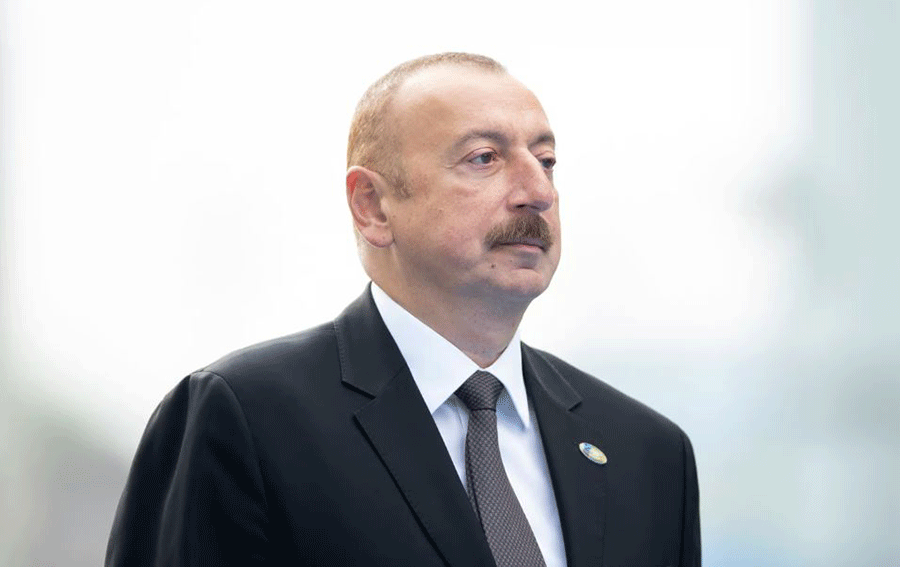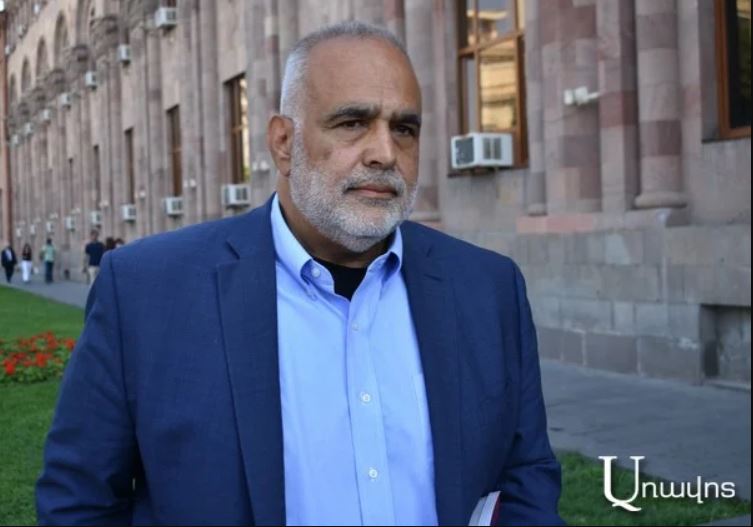Raffi K. Hovannisian, Armenia’s first minister of foreign affairs, is the founding chairman of the Heritage Party.
The leaders of Armenia and Azerbaijan keep announcing a deal is imminent. But whether or not they reach an agreement, there will never be peace here.
YEREVAN — Meeting with Russian President Vladimir Putin in Moscow, followed by French President Emmanuel Macron and German Chancellor Olaf Scholz this month, the leaders of Armenia and Azerbaijan keep announcing that a peace deal over the ancient but embattled territory of Mountainous Karabakh is imminent.
Read also
Whether or not a peace deal is ever reached, however, peace itself is condemned to fail.
In March 1992, as the newly independent Armenia’s first minister of foreign affairs, I negotiated the original international mediation for peace, security and status in Karabakh.
As the Soviet Union began to crumble, Karabakh — or Artsakh in Armenian — had declared its independence from Soviet Azerbaijan, and then the USSR in toto. And the deadly war that ensued, whereby Baku endeavored to reverse the rights to self-determination and sovereignty by force — rights that Armenians had exercised under controlling Soviet legislation as well as the Montevideo Convention on the rights of states — created a complex situation.
But we got to work.
At the Conference on Security and Cooperation in Europe’s (CSCE, later OSCE) 1992 meeting of foreign ministers in Helsinki, the summit decided — by consensus — to accept the charge of hosting the Karabakh peace process in order to determine, pursuant to the precepts of the Helsinki Final Act, the region’s ultimate status at a future conference in Minsk.
Hammered out by required consensus and inspired by the specific mandate of achieving sustainable peace, the final document contained three key points:
The first was to take the conflict outside of the East-West axis — or, rather, place it neatly into a new cooperation zone — and, ultimately, bring in the United States, Russia and also France to co-chair what later came to be known as the Minsk Group.
The next was to respect human rights and dignity, bringing a halt to Azerbaijan’s ongoing land blockade between Armenia and Karabakh by opening a humanitarian corridor.
Finally, to guarantee the success of the peace process, was ensuring the participation of not only Armenia and Azerbaijan but also the elected officials of Mountainous Karabakh.
So, when a tripartite ceasefire among Azerbaijan, Karabakh and Armenia was eventually agreed in May 1994, there was real hope in its longevity, hope that a final diplomatic solution would be had — and that the Minsk Conference might, indeed, at last be convened.
But alas, there were other plans.
After growing tensions and skirmishes along the border, under the cover of COVID-19 and the 2020 U.S. presidential elections, in September of that year, Azerbaijan unleashed a multipronged war not only upon what it considered its “breakaway” Republic of Mountainous Karabakh, but against the Republic of Armenia as well — something that, 105 years after the Armenian Genocide, many in the country feel would have been impossible without the military, intelligence, logistical and special-ops support of ethnic cousin and NATO ally Turkey.
Russia then brokered a ceasefire in November, introducing a peacekeeping operation and leaving Azerbaijan occupying nearly half of Karabakh and swathes of the sovereign Republic of Armenia.
This was a reversal of the first negotiation point — taking the conflict outside of the East-West axis.
Then, the Lachin corridor was shut down. And as a result, the Artsakh Republic and its 120,000 surviving residents — a quarter of them children — have been left in a choke hold, with Russian peacekeepers looking ambivalently on for nearly six months now.
This was a reversal of the second point — respecting human rights and dignity.
And this isn’t just a flagrant violation of the original CSCE/OSCE mandate either, it also flies in the face of a binding judgment by the International Court of Justice, which demanded Azerbaijan open the corridor and return it to its status quo ante, pending a final settlement of the matter.
Crucially, the recent turn of events has seen Karabakh’s Armenian administration lose its seat at the table too. Far from the right to self-determination and its guarantee, and respect for a nation’s legitimate path to sovereignty, today Mountainous Karabakh is under attack today from all sides.
And this final reversal was of the most vital negotiation point — the right of the Armenians of Karabakh to take part in decisions about their own destiny.
Yet, somehow, a deal over their fate is soon to be closed. And this deal is currently being negotiated on the one side by Ilham Aliyev — Azerbaijan’s dictator-president, who is using oil-and-gas leverage abroad to dictate terms — and on the other by Nikol Pashinyan, Armenia’s own democrat-turned-petty dictator who refused to abdicate after being defeated in the disastrous war, and is now preparing to cling to to power by capitulating to Azerbaijan.
If Aliyev and Pashinyan do not get prison, they will win a peace prize. Yet still, there will never be peace in Karabakh.



























































